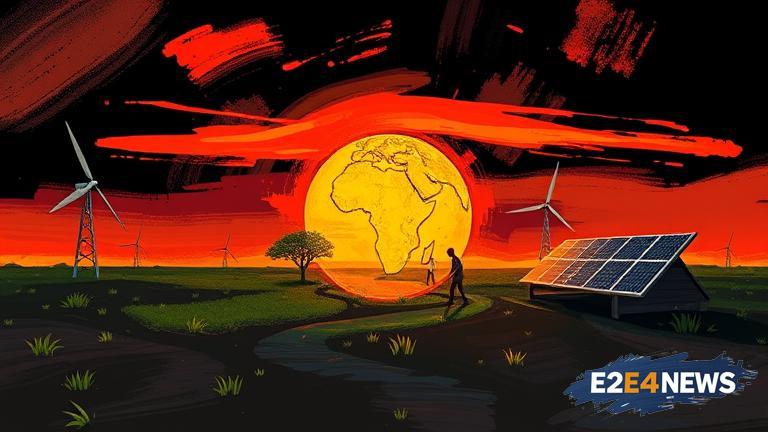The African continent is witnessing a significant shift towards renewable energy, driven by the need to address the pressing issues of energy access, energy security, and climate change. With many countries still struggling to provide reliable and affordable electricity to their citizens, renewable energy has emerged as a viable solution. Solar and wind power are leading the charge, with countries like South Africa, Morocco, and Egypt making significant investments in these sectors. The African Renewable Energy Initiative, launched in 2015, aims to achieve at least 300 GW of renewable energy capacity by 2030. This ambitious target is expected to create new opportunities for economic growth, job creation, and sustainable development. In South Africa, the Renewable Energy Independent Power Producer Procurement (REIPPP) program has been instrumental in promoting private sector investment in renewable energy. The program has attracted over $10 billion in investment, creating thousands of jobs and reducing the country’s reliance on coal-fired power plants. Morocco, on the other hand, has set an ambitious target of generating 52% of its electricity from renewable sources by 2030. The country’s Noor-Ouarzazate solar power complex, one of the largest in the world, is a testament to its commitment to renewable energy. Egypt, too, is making significant strides in the renewable energy sector, with plans to generate 20% of its electricity from renewable sources by 2022. The country’s Benban solar park, located in the Aswan province, is expected to generate 1.8 GW of electricity, making it one of the largest solar parks in the world. Other African countries, such as Kenya, Tanzania, and Ghana, are also making significant investments in renewable energy. The Kenyan government, for example, has set a target of generating 70% of its electricity from renewable sources by 2030. The country’s Lake Turkana Wind Power project, which is expected to generate 310 MW of electricity, is one of the largest wind farms in Africa. Tanzania, too, is promoting the development of renewable energy, with a focus on small-scale solar and wind power projects. The Ghanaian government, on the other hand, has launched a number of initiatives to promote the use of renewable energy, including the development of solar-powered irrigation systems for farmers. Despite the progress made, there are still significant challenges to be addressed, including the lack of infrastructure, limited access to financing, and the need for policy and regulatory frameworks that support the development of renewable energy. However, with the right policies and investments in place, Africa’s renewable energy revolution is poised to transform the continent’s energy landscape, creating new opportunities for economic growth, job creation, and sustainable development. The African Union’s Agenda 2063, which emphasizes the importance of sustainable development and renewable energy, provides a framework for countries to work together to achieve their renewable energy targets. The private sector, too, is playing a critical role in promoting the development of renewable energy in Africa, with companies like Vestas, Siemens Gamesa, and Goldwind investing heavily in the sector. International organizations, such as the International Renewable Energy Agency (IRENA) and the African Development Bank, are also providing critical support to African countries, including technical assistance, financing, and capacity building. As the continent continues to transition towards a low-carbon economy, it is likely that renewable energy will play an increasingly important role in meeting Africa’s growing energy demands. With its abundant solar and wind resources, Africa has the potential to become a global leader in renewable energy, creating new opportunities for economic growth, job creation, and sustainable development. The future of Africa’s energy sector looks bright, with renewable energy poised to play a critical role in shaping the continent’s energy landscape.





